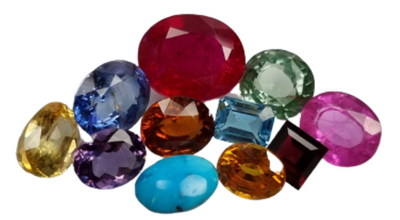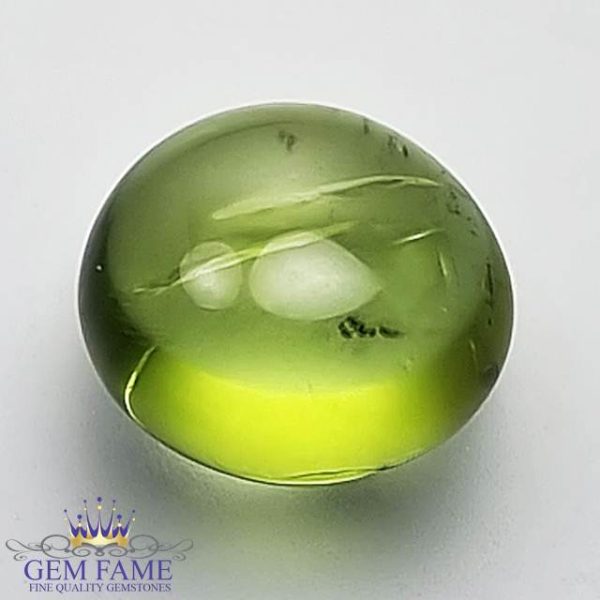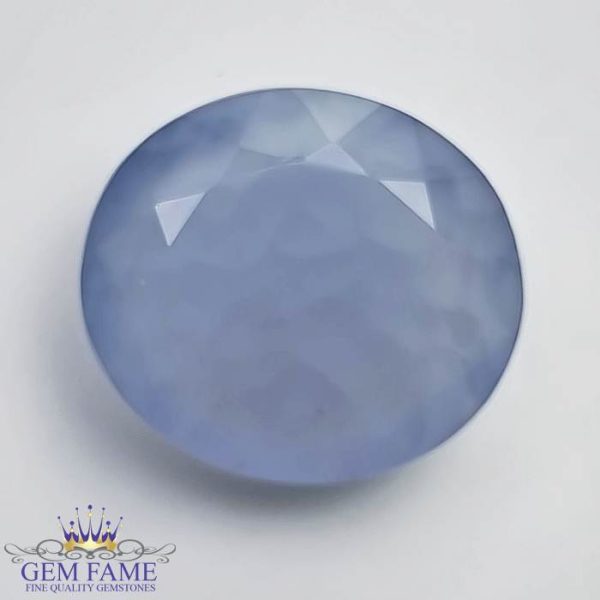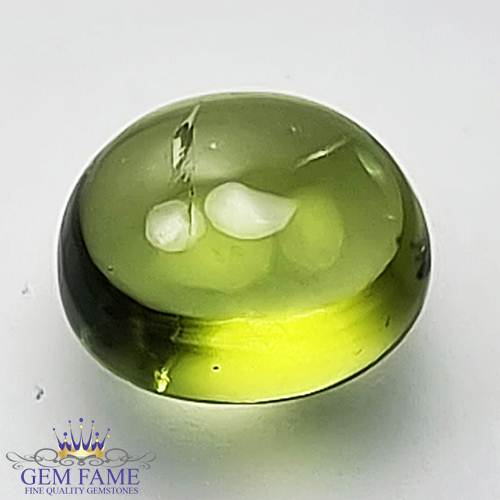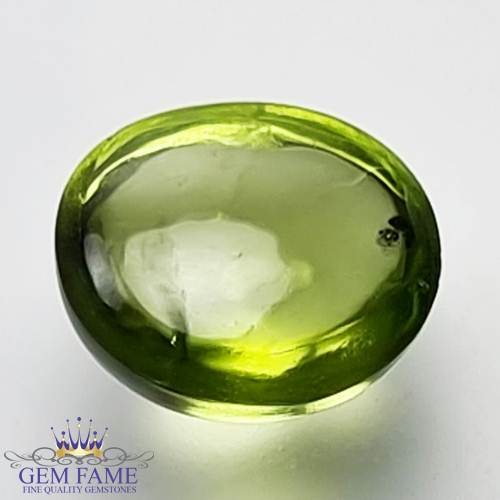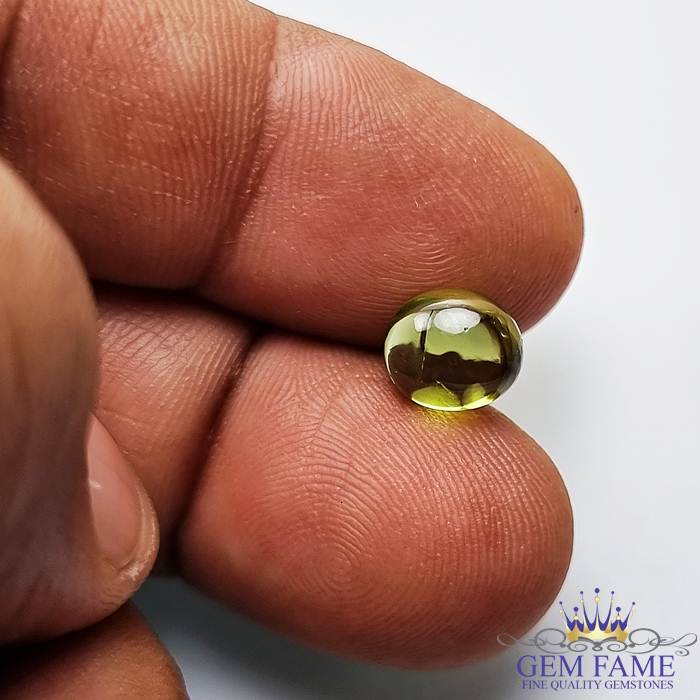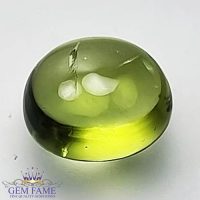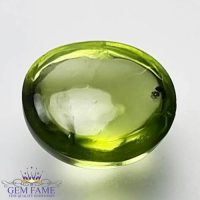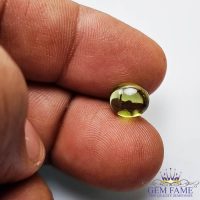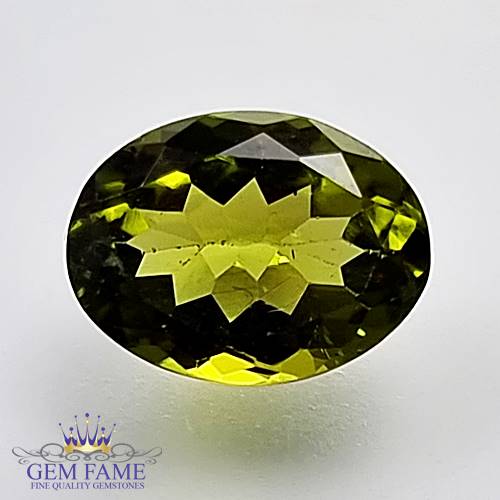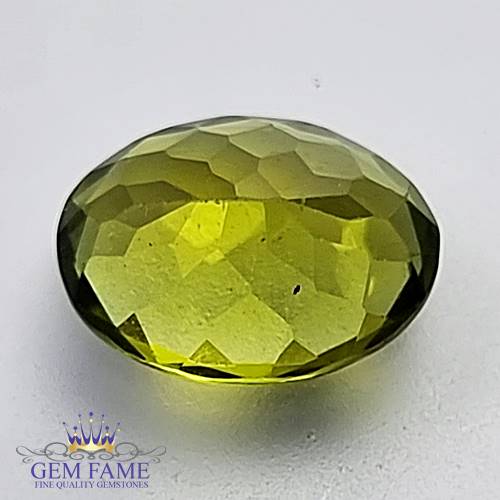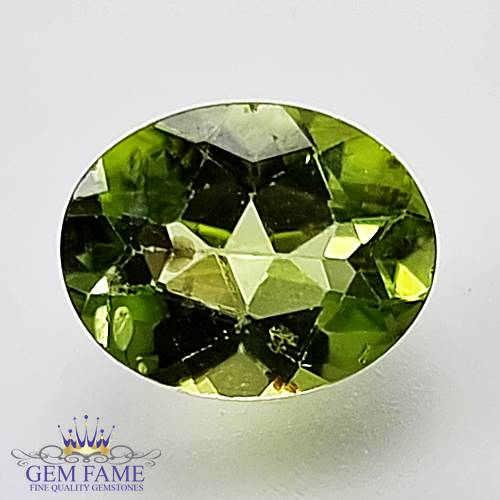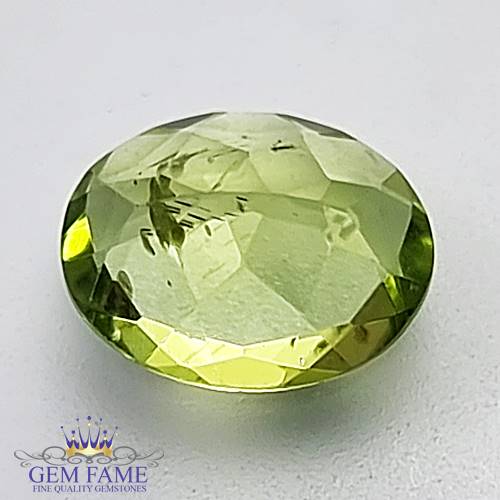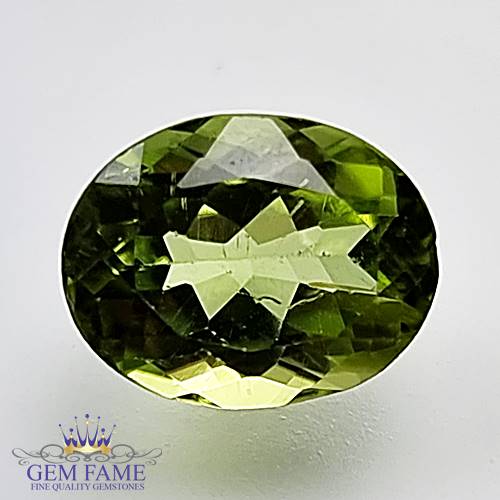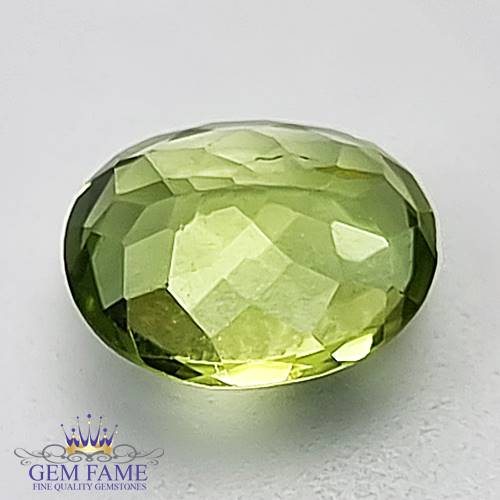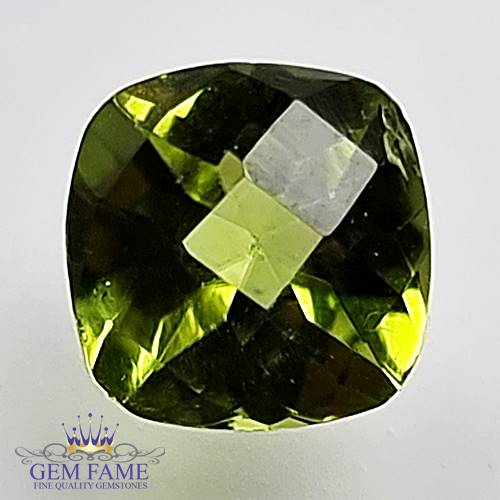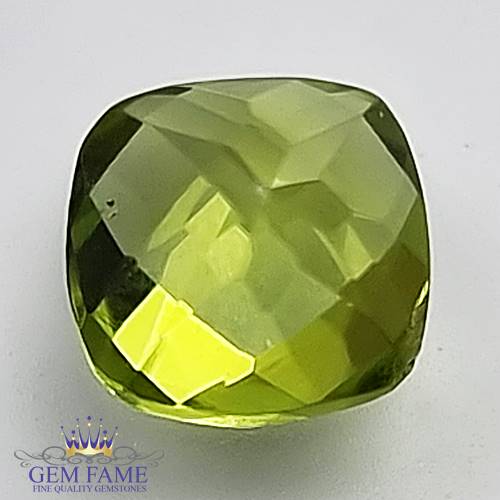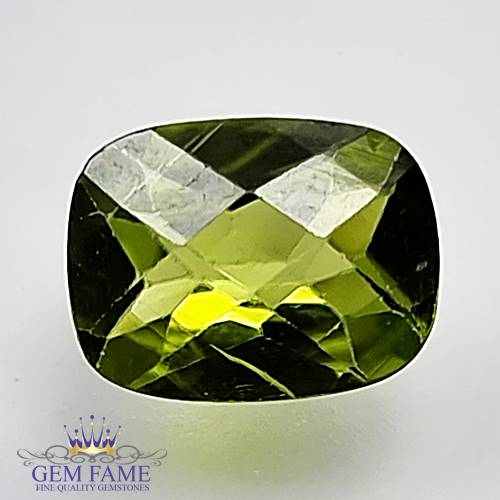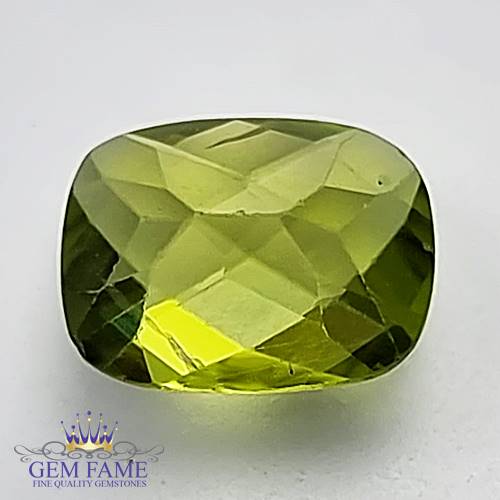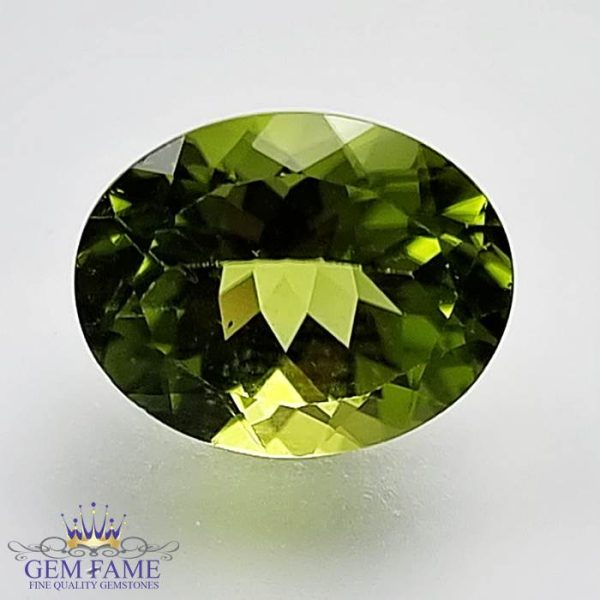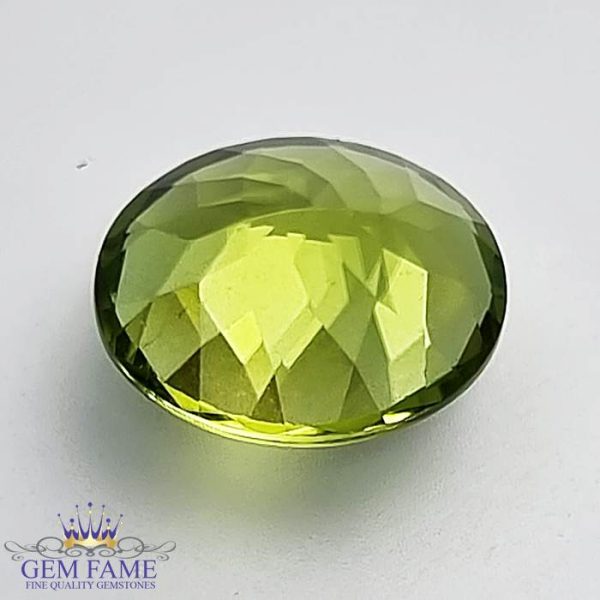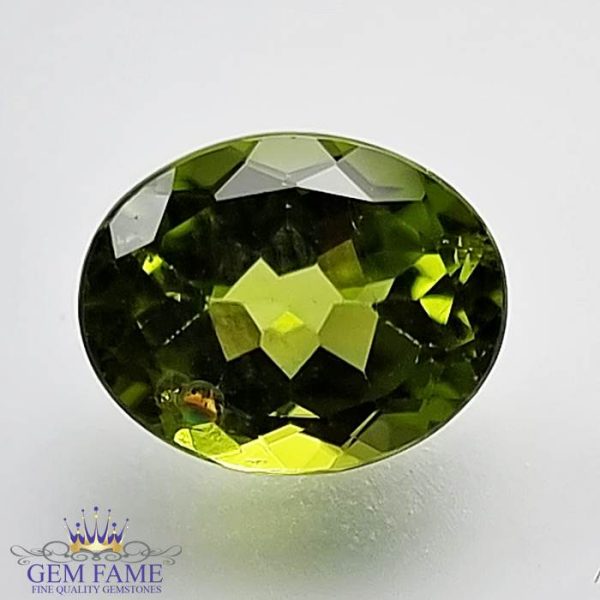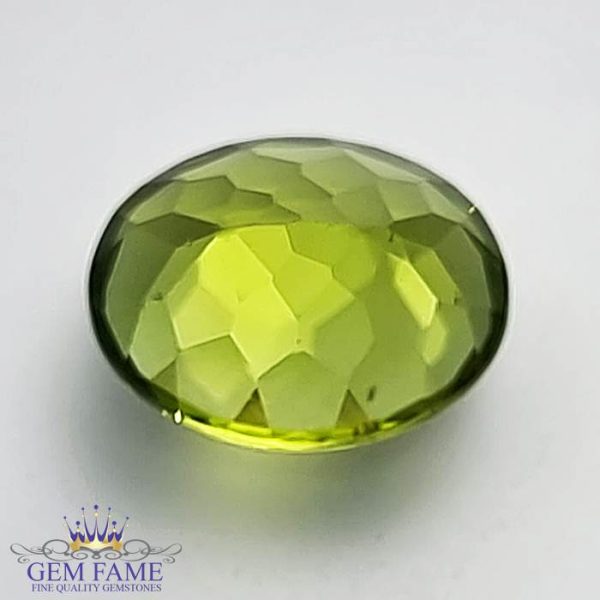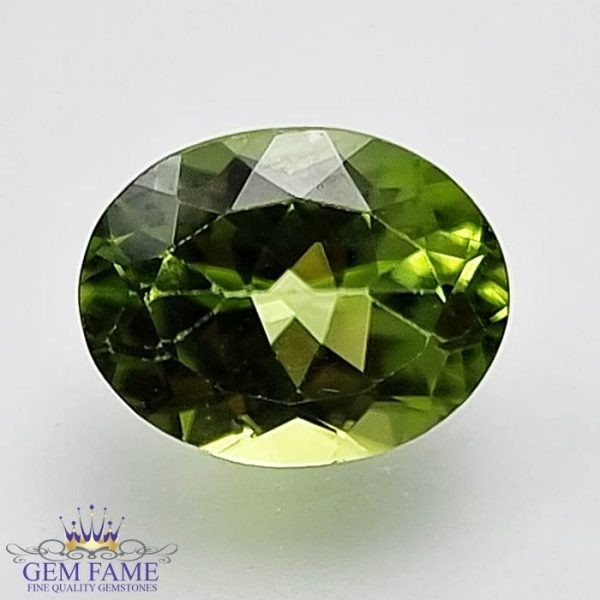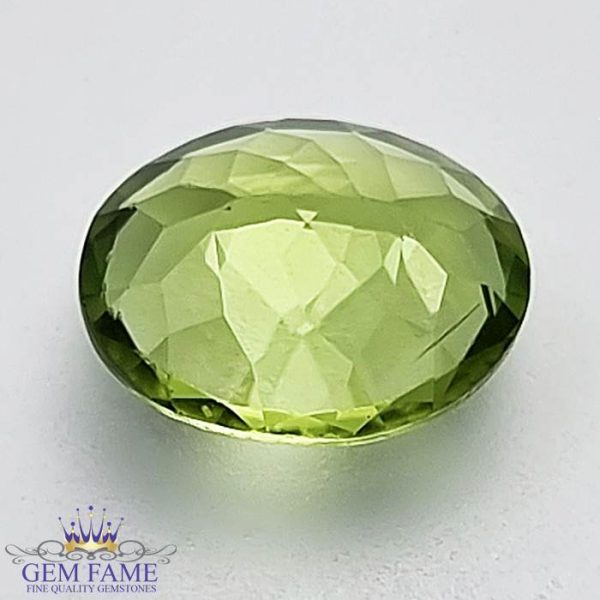Description
Peridot Gemstone 3.02ct
Description
This Peridot is Natural Gemstone Which is Olive Green Colour, it’s Originates from Arizona and it’s exact Weight is 3.02ct The Measurements are 8.87×7.71×4.86mm the Shape and Cut of This Stone is Oval Cabochon It’s Graded Transparent and Clarity is Excellent. This 3.02ct Olive Green Natural Peridot Gem is available for ready to Ship anywhere in The World. You Can also Select Certification and Shipment Method as Optional.
Details
| Summary No | AK07600 |
| Species | Natural Peridot |
| Weight | 3.02ct |
| Shape/cut | Oval Cabochon |
| Colour | Olive Green |
| Dimension | 8.87×7.71×4.86mm |
| Clarity | Excellent |
| Transparency | Transparent |
| Origin | Arizona |
| Treatment | None |
Peridot Gemstone 3.02ct
Properties Of Peridot
Chemical Composition : (Mg,Fe)2SiO4 [Magnesium Iron Silicate]
Hardness: 7.00Moh
Specific Gravity (Density) : 3.275
Refractive Index: 1.635 – 1.772(DR)
About: Peridot Gemstone
Peridot is the green variety of the Olivine Group of minerals. Olivine is not an individual mineral but a group of minerals that includes Fayalite, Forsterite, Liebenbergite, Tephroite and Laihunite. Fayalite (Mg2SiO4) is the iron rich member of the Fayalite Forsterite mineral series, Forsterite (Fe2SiO4) is the magnesium rich member. Peridot (Mg2Fe2SiO4) is the green variety of Forsterite containing both Iron (Fe) and magnesium (Mg). Peridots colour can vary from pale to rich green (for which Peridot is famous) to brown. The considerable variation in shades of green to brown is dependant on locality of origin and amount of ferrous iron. The ideal green Peridot has an iron content of about 12-15%. More iron results in a muddy colour. Very bright green Peridot may also contain traces of chromium.
Peridot is not a recognized mineral name. Its hard to believe that Peridot is the equivalent of a trade name, not a recognized mineral name since it is one of the most popular and well-known gems in the world. Peridot has been a popular gem throughout history.
Peridot is available from many localities worldwide including these well-known sources: Mogok, Sagaing District, Mandalay Division, Burma (Myanmar); St Johns Island (Zagbargad; Zebirget; Topazios), Red Sea, Egypt; Naran-Kagan Valley, Kohistan District, North-West Frontier Province, Pakistan; and Peridot Mesa, San Carlos, San Carlos Indian Reservation, Gila Co., Arizona, USA.

